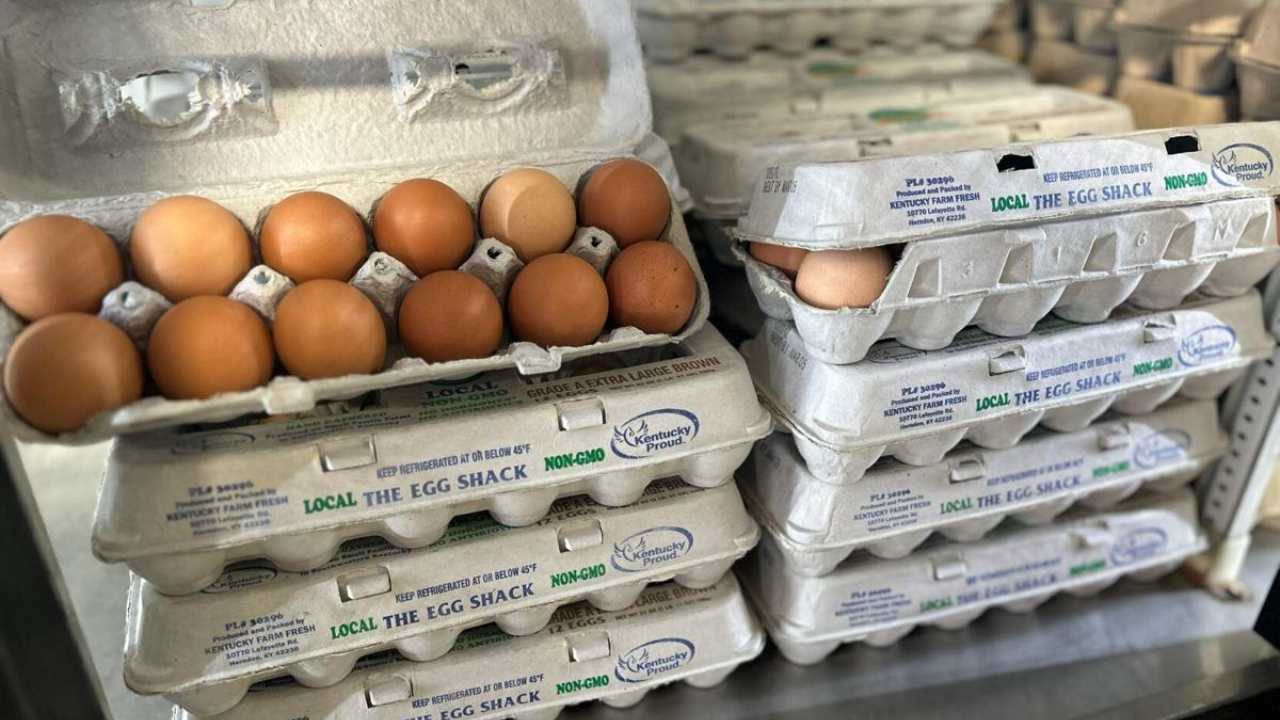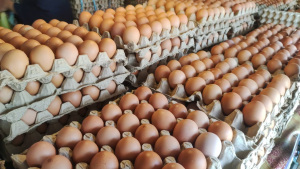In recent months, Indiana has witnessed a significant surge in egg prices, a trend mirrored across the United States.
This escalation is primarily attributed to a severe outbreak of avian influenza, commonly known as bird flu, which has drastically reduced the population of egg-laying hens.
Consequently, consumers and businesses alike are grappling with increased costs and limited availability of this staple commodity.
Impact of Avian Influenza on Egg Production
The current strain of avian influenza has compelled farmers to cull millions of chickens to prevent the virus’s spread.
In Indiana alone, over 3 million commercial egg-laying chickens have been depopulated, with a significant number from Rose Acre Farms in Seymour. The company estimates that recovering the affected flock could take 18 to 24 months.
This reduction in supply has led to unprecedented price hikes. As of January 30, a dozen large eggs in the Midwest cost $7.08, a stark increase from $1.65 three years earlier.
Retailers and restaurants are responding by rationing eggs or adding surcharges. For instance, Waffle House has introduced a temporary 50-cent surcharge per egg to offset rising costs.
Local Farmers’ Responses
Indiana farmers are employing various strategies to navigate these challenges. Darren Bunton, Operations Director at Monon House Farms, notes a surge in demand for locally produced eggs.
“Nationally, of course, the prices of eggs have shot through the roof,” Bunton observes. “More people are requesting the locally grown eggs instead of going to a supermarket.”
However, meeting this increased demand is challenging. Raising new egg-laying hens is a lengthy process, taking up to 30 weeks for a chick to mature and produce eggs.
Additionally, the cost of feed, which constitutes 60% to 80% of production expenses, has risen due to factors like high fertilizer and fuel costs.
Economic Implications for Businesses and Consumers
The soaring egg prices are affecting various sectors. Brunch restaurants, which rely heavily on eggs, face difficult decisions regarding menu pricing and ingredient sourcing.
Some establishments are absorbing the increased costs, while others are adjusting their menus or prices to remain viable.
Consumers are also feeling the pinch. Many are seeking alternatives or reducing egg consumption due to higher prices.
The U.S. Department of Agriculture (USDA) assures that properly prepared and cooked poultry and eggs remain safe to eat.
They are funding research into vaccines to protect poultry, though widespread vaccination is not imminent.
Read More:
- Illinois Grocery Stores Struggle to Keep Egg Prices Down!
- Idaho Sees Significant Increase in Egg Costs at Local Markets!
Government and Industry Efforts
The USDA is actively monitoring the situation and providing resources to affected farmers.
They offer guidelines on biosecurity measures to prevent the spread of avian influenza and financial assistance programs to support impacted poultry operations.
For more information, farmers can visit the USDA’s Animal and Plant Health Inspection Service (APHIS) website.
In Indiana, the State Board of Animal Health (BOAH) is collaborating with poultry producers to manage the outbreak.
They provide updates on the status of avian influenza in the state and offer resources for farmers to enhance biosecurity. More details are available on the BOAH website.
Looking Ahead
While the current outlook remains challenging, there is cautious optimism that egg prices will stabilize as efforts to control the avian influenza outbreak progress.
Farmers are hopeful that with effective biosecurity measures and potential vaccine developments, the poultry industry can recover, leading to more stable egg supplies and prices in the future.
In the meantime, consumers and businesses must adapt to the evolving market conditions, exploring alternatives and supporting local producers where possible.
The resilience and adaptability of Indiana’s farming community continue to play a crucial role in navigating this crisis.
Disclaimer- Our team has thoroughly fact-checked this article to ensure its accuracy and maintain its credibility. We are committed to providing honest and reliable content for our readers.






















+ There are no comments
Add yours